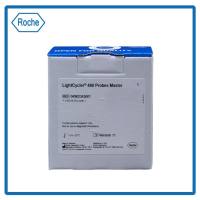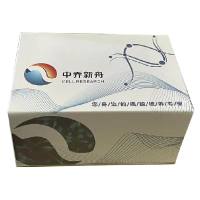Production of Hybridization Probes by the PCR Utilizing Digoxigenin-Modified Nucleotides
互联网
445
The polymerase chain reaction (PCR) (1) is an efficient method for copying a fragment of DNA when primers exist that flank the target sequence. We have found that since most cloning vectors utilize the lacZ gene with a synthetic multiple cloning site (2), a single pair of primers will amplify sequences inserted into many common phage and plasmid vectors, such as the pUC plasmid and Lambda Zap phage series and their derivatives. We have had little difficulty amplifying inserts up to 3000 bp in length and now consider this as a preferred alternative to growth of bacterial cultures with subsequent nucleic acid purification to produce DNA fragments of this length for both mapping and sequencing.









